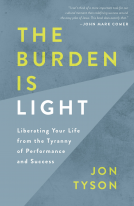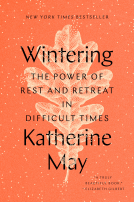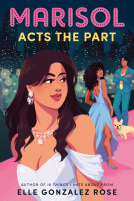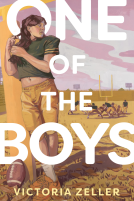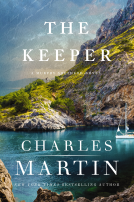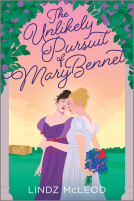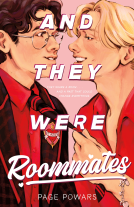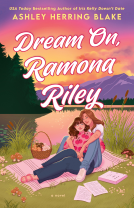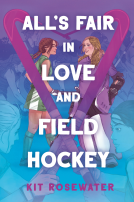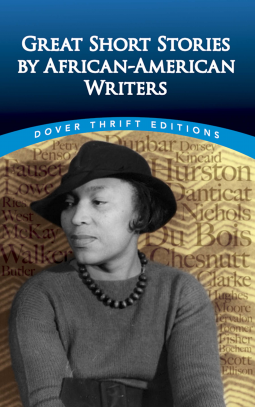
Great Short Stories by African-American Writers
by Christine Rudisel
This title was previously available on NetGalley and is now archived.
Send NetGalley books directly to your Kindle or Kindle app
1
To read on a Kindle or Kindle app, please add kindle@netgalley.com as an approved email address to receive files in your Amazon account. Click here for step-by-step instructions.
2
Also find your Kindle email address within your Amazon account, and enter it here.
Pub Date Aug 19 2015 | Archive Date Sep 09 2015
Description
From the turn of the twentieth century come Alice Ruth Moore's "A Carnival Jangle," Charles W. Chesnutt's "Uncle Wellington’s Wives," and Paul Laurence Dunbar's "The Scapegoat." Other stories include "Becky" by Jean Toomer; "Afternoon" by Ralph Ellison; Langston Hughes's "Feet Live Their Own Life"; and "Jesus Christ in Texas" by W. E. B. Du Bois. Samples of more recent fiction include tales by Jervey Tervalon, Alice Walker, and Edwidge Danticat. Ideal for browsing, this collection is also suitable for courses in African-American studies and American literature.
Available Editions
| EDITION | Paperback |
| ISBN | 9780486471396 |
| PRICE | $4.50 (USD) |
Featured Reviews
 Laura B, Librarian
Laura B, Librarian
As with most short story collections there were some stories that I really loved, and others that I really didn't care for. Overall it was an interesting collection, and I don't think I had read any of the stories before.
 Joseph S, Reviewer
Joseph S, Reviewer
Great Short Stories by African-American Writers edited by Christine Rudisel and Bob Blaisdell is a historical collection of short stories reflecting African-American Heritage. The stories presented are written between 1895 and 1996 and reflect the cultural history of African-Americans in the United States. The stories are a reflection of history and moral identity of a people. Some stories are simple and humorous like Charles W. Chestnutt's "Uncle Wellington's Wives." Although the characters in this story speak with stereotypical poor English, the writing is professional. There is a wide variety of writers with over two dozen featured, however, Chestnutt and Du Bois are the only two writers I have any experience within this collection.
Some of the stories are simple others carry more of a historical tone. Paul Laurance Dunbar's "The Scapegoat" (1904) is a portrayal of politics in the post-antebellum south. It captures the system that was built to give representation to the freed black men in the south. Racism and cracks in the system shown in Dorothy West's "Mammy" written in New York City in 1940.
This collection by Dover Thrift will give the reader an overview and a chance to see the evolution of Africa-American writes. The number of writers and the one hundred plus years of published stories reveal a broad spectrum of literary history in an often overlooked field. An eye-opening book more than worth the $4.50 price tag.
36 short stories, written by African Americans between 1896 and 1996, some funny, some interesting, some depressing and some boring. It's like a walk through American History of everyday life told from a different point of view.
Some stories are very difficult to read because of the strong accent.
Thanks to Netgalley and the publishers for a free ARC.
 Media/Journalist 220505
Media/Journalist 220505
Great Short Stories by African-American Writers edited by Christine Rudisel and Bob Blaisdell is a historical collection of short stories which reflect African-American Heritage. The stories presented are written between 1895 and 1996 and detail the cultural history of African-Americans in the United States from Alice Ruth Moore to Kia Penso.
This is a broad spectrum of history, culture and philosophy of many writers and the reader can see the development of the literary canon and the struggles of the African American.. The 26 story collection also serves as historical record of dialect and language which can make it hard to understand at times if you aren't familiar with the lexicon.
I hadn't heard of some of the authors so this collection served as a great introduction and start point for further exploration.
I enjoyed Paul Laurance Dunbar’s “The Scapegoat” (1904) : a portrayal of politics in the post-antebellum south. which captures the system that went on to be created to give representation to the freed black men in the south..
We rub up against the North versus South issue and the idea of the North as a fabled place of safety, recognition and freedom. Chestnutt's protagonist Uncle Wellington actually describes it as the 'land flowing with milk and honey- a land peopled by noble men and beautiful women a,mong whom coloured men and women moved with the ease and grace of acknowledged right.' Yet read Rudokph Fishers 'The City of Refuge' and you see the more prosaic and risky reality of the North where hustlers prey on 'a baby jess in from the land 'o cotton'.
Many of the issues are strictly the premise of the African American although the emotions and responses are, naturally, universal to all humankind. There's the permanent post traumatic effects of slavery and discrimination. There's the effect racism has upon male and female identity. There's the different cultural responses to racism and stereotyping where parent and child clash in their differing responses., As times change, families must endure further pain and possible alienation from children who are less conditioned to tolerate, put up, shut up.
"White folks moved out when we moved in the block" said Buster in Ralph Ellison's 'Afternoon'. This collection forces us all to inhabit the reality of people who have, for too long, been depicted as not PLU.
Read it and LISTEN.
 Chris M, Reviewer
Chris M, Reviewer
I received an ARC copy of this short story collection from the publisher through NetGalley in exchange for an honest review.
A great collection for anyone interested in great short fiction. I have read a good deal of the classics of African American fiction, including the devastating “Souls of Black Folk” and my favorite “Diary of an Ex-Colored Man.” This collection contains well known names, like William E. B. Dubois, Langston Hughes, and Alice Walker, but also many names that you may never have heard.
As I wondered why I had never heard of some of these very talented writers, I reviewed the introduction and, later, the ending notes on the stories. I was stunned to find that not only did many of these extremely talented writers receive no recognition, but we are not even at this time aware of the mundane facts about their lives---like the dates or even years of their birth. As I put this book down (figuratively, since I read this on my Kindle) I marveled that it was a struggle to even get these stories published in the first place. This collection is not only great fiction, but it is a remembrance and appreciation of the lives and talent of these great writers.
Many stories for me, as a non-African American, were an insight into the culture of the times in which the stories were written, starting from the late 19th century through the late 20th century and I am grateful for that as well as the sheer enjoyment of the stories. Thematically, the stories range from the dreamlike New Orleans streets of “A Carnival Jangle,” to the humorous “Uncle Wellington’s Wives” (which reminded me of Mark Twain) and “George Sampson Brite”, the African-American Jazz Age of “Muttsy” and the modern “Everyday Use” and The Drill.” I particularly enjoyed the dark tales of “Jesus Christ in Texas” which thematically reminded me of Dostoyevsky’s “The Grand Inquisitor” and the deeply chilling “Mammy.” A few stories left me a bit cold, but that is to be expected of any collection as tasted vary.
I also enjoyed the very generous endnotes. They provided insight into not only the stories themselves, but also the lives of the writers.
5 stars.
 Earl M, Reviewer
Earl M, Reviewer
Great Short Stories by African-American Writers collects 26 short stories spanning approximately all of last century (1895-1996) into a compact anthology. This is certainly less extensive than the anthologies you might remember from school (Barksdale's Black Writers of America is the one I remember most fondly) but is not intended to fill such a niche. This is a wonderful introduction to both the short story form as well as the African-American experience of the past century and a half. It is filled with humor and sadness, with statements both cultural and personal.
While some of my favorites are not included (to be expected in any anthology) the selections were well-chosen to display a wide range of styles and tones. I think most readers of fiction will find some stories here that will stay with them well after putting the book down. People not used to reading fiction should still gain a great deal, it is just that readers of fiction are more used to empathetic readings across time and cultures so will more readily find characters with which to relate. That certainly doesn't preclude the social scientist from learning a great deal even if they may appreciate the fiction a little less.
Highly recommended as either an introduction or a supplement if some of the stories are new to you. The short biographies in the back along with the bibliography provide great resources to use to learn more or find more to read by these authors.
Reviewed from an ARC made available by the publisher via NetGalley.
